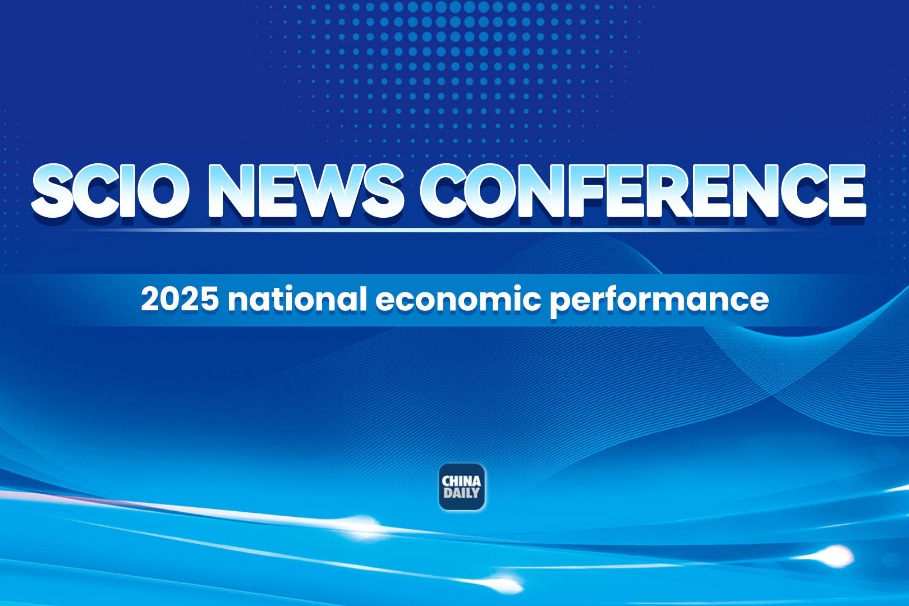Willingness to diversity pays dividends

| Opening ceremony of a Sogecoa hotel in Madagascar. Photos Provided to China Daily |
| A supermarket run by Sogecoa, an overseas trademark of Anhui Foreign Economic Construction Co, in Mozambique. |
As others fail, Anhui company survives test of character in African countries
When a foreigner gets into a taxi in Maputo and asks to be taken to "the Chinese supermarket", the driver is likely to know immediately where to go, so well-known have the supermarket and a nearby Chinese hotel become in the Mozambican capital.
The two properties belong to the Chinese company Sogecoa. Even as many Chinese construction companies complain about the slim pickings from overseas projects at the moment, Sogecoa is raking in money by diversifying.
It is the overseas trademark of Anhui Foreign Economic Construction Co, a company based in Hefei, Anhui province. It registered in Mozambique in 1999 as a construction company to carry out Chinese government aid projects.
Zhou Jie, general manager of Sogecoa Mozambique, says the operation is a product of the going-global wave of the 1990s.
"By then, the government had appointed 11 provinces to go to 11 African countries to build consulting centers for Chinese investors, and Anhui was chosen for Mozambique.
"So the provincial government established a company and sent a group of people to Mozambique to 'guide' other Chinese people's investments."

Each of the 11 companies was given a 20-million-yuan ($3.2-million) loan to build its consulting center, Sogecoa being among them.
The center Sogecoa built in Maputo was designed for Chinese investors: each floor has three suites, and each suite has three bedrooms and a living room. It was intended to be rented to Chinese companies as working and living space.
But by then far fewer Chinese investors were coming to Africa, and all the 11 consulting centers were left idle after building was complete.
"Only when we became financially viable can we help others to have a viable business," Zhou says.
"If an investment consulting company cannot survive in the first place, how can we guide others to succeed?"
Zhou has been in Mozambique since Sogecoa was established in 1999, and went back to China in 2007 when his wife had a baby. He returned in 2011.
When Sogecoa realized it could not persuade a large group of Chinese to come to Mozambique immediately, it tackled the problem pragmatically: it turned the large space at its disposal into a supermarket, and the suites into hotel rooms. It soon got cash flow, and the company survived.
While other Chinese companies left the country for lack of revenue or went bankrupt, Sogecoa managed to pay off its loan.
Zhou attributes the company's success to its down-to-earth approach to business.
"Since we had the property, we needed to make use of it, rather than waiting for Chinese investors to arrive."
In addition to the supermarket in Maputo, Sogecoa has seven supermarkets in five other African countries. Products generally come from China and include almost everything from instant noodles and kettles to plastic Christmas trees.

Twenty years after Sogecoa was founded, Chinese investors are flooding into Africa, and 40 percent of its real estate space is rented out to Chinese companies doing business here, and the rest is taken up by hotel rooms.
Commercial real estate development has become a focus of Sogecoa. It plans a five-star hotel in Maputo, on the beach, in partnership with international hotel brands such as Sheraton and Hilton.
Every year the parent company pumps money into Mozambique and so far the largest investment project is in the port of Beira, the country's second-largest city. The company has built a five-star resort in the city, and a China-Mozambique economic and trade cooperation park, the building of which has just been completed.
"We run two five-star hotels and a big supermarket in Hefei, so we have the experience to do this kind of thing in Africa," Zhou says.
Sogecoa also built MBS, the biggest shopping center in Maputo.
Sogecoa is now present in 26 countries worldwide including 12 in Africa. It employs more than 100 Chinese and 600 local workers in Mozambique alone.
As the company continues to grow, it has hired labor lawyers to put in place a legal framework to avoid industrial conflict, a common problem for foreign companies in Africa.
Sogecoa says it treats all of its branches in no matter what country as equal, and they all report directly to the parent company in Anhui. Zhou and other overseas managers fly back to China at the end of every year to report to headquarters.
Now almost all of the company's construction work has moved overseas, Zhou says.
"In Africa, we do most of our business in Madagascar and Zimbabwe."
In 2011 it got involved in a gem mine project in Zambia.
Sogecoa has also been involved in Chinese government aid projects, particularly in the early 2000s. In Mozambique these included the building for the Congress, the ministry of foreign affairs, an international conventional center and a residential community for military officers. These projects were all finished in the early 2000s.
In 2010 the company finished building a sports stadium in Maputo, costing 500 million yuan used in the All-Africa Games the following year.
These projects were all gifts from the Chinese government, which paid Sogecoa.
Tian Shiyue, vice-president of Anhui Foreign Economic Construction Co, parent company of Sogecoa, says diversification is key for the company's overseas development.
"We have quickly adapted to the economic changes in Africa in recent years, and that has paid off ," Tian says.
Construction projects and investment are two pillars of Sogecoa's operations, he says.
"Other construction companies tend to treat construction projects as tasks, and whenever they finish the task they leave the country.
"But we treat them as opportunities because we aim for long-term development here. We invest in our own business and our own construction projects, rather than depending purely on aid projects."
In the past two years, the Mozambique company has gradually given more attention to Beira, because Maputo's location in the far south makes it inconvenient for communication and logistics reasons, Zhou says. In future, more investment will flow to Beira, he adds, and sees Mozambique to be a good investment destination.
"Stability is a prerequisite for a company's development, and Mozambique has very good social order. Apart from that, the country's economy has grown at an average of about 7-8 percent every year for the past 10 years.
"Now the country has become an international investment hot spot, and I'm sure it will attract more and more investors."
Contact the writers through wangchao@chinadaily.com.cn
(China Daily Africa Weekly 06/20/2014 page20)
Today's Top News
- China reports 5% GDP growth in 2025
- Sanya rises as magnet for Russian tourists
- China's steady opening-up for Asia-Pacific economic growth
- Blueprint seen as a boon for entire world
- 'Kill line' an inevitable outcome of US system
- Fusion energy drive entering a decisive phase































